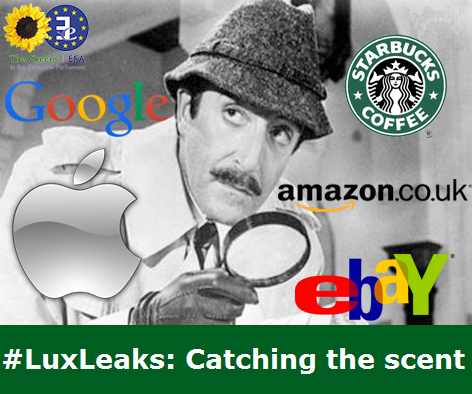We continue to push hard to get access to all documents needed to clarify who bears the blame for tax dumping in Europe and in particular for the failure of the Code of Conduct Group on business taxation, a Council fora dedicated to eliminate harmful tax measures.
Together with Fabio de Masi (GUE/NGL), today I wrote to DG TAXUD Director General Stephen QUEST who is responsible for access to documents of the European Commission (see below). We hope to receive an answer in a timely manner.
You can find the corresponding letter we sent to the Coordinators of the European Parliament’s Special Committee against tax avoidance here: 2016-02-22 TAX2 coordinators access to documents letter Giegold De Masi
Dear Mr Quest,
Dear Stephen,
Many thanks for taking the time this week to discuss with us TAXE coordinators directly. We appreciate your cooperative attitude and look forward to making progress on the remaining issues around the committee’s access to documents.
Please find attached the letter we sent to our colleagues ahead of the meeting, recapitulating our perspective on outstanding elements with respect to Commission and Council documents. We would be very happy to discuss those further with you or your respective staff.
Based on your provisional replies at Monday’s meeting, we would add the following comments to our letter:
- We take note of your explanation that there exist several versions of CoCG documents at your services and that this might be the reason for the difference between 5500 documents overall and less than 500 provided to TAXE. Yet, we feel that without an appropriate overview of the documents, it is hard for us to accept your statement according to which the remaining more than 90% of all documents are irrelevant to our work. We welcome in this regard your commitment to provide the committee with a systematic list of documents as well as their status (shared publicly / made available in reading room / not shared (with reason)).
- We may be mistaken, but we don’t think that the grid of harmful tax practices you mentioned in the meeting has been made available to TAXE. In the reading room, we could consult a room document listing some harmful measures until 2002. Another overview of harmful practices was provided to the University of Amsterdam. We would be grateful if those documents could be shared (again) with all members. In addition, it would be most beneficial to our task of fulfilling TAXE’s mandate if your services could provide us with an updated version of those lists for the entire 1998-2015 period. In terms of analysing the CoCG’s effectiveness, it would be tremendously helpful to have an overview of all potentially harmful regimes discussed with the respective assessment and decision having been taken.
- As regards other Council fora mentioned in our letter, we welcome your suggestion to look into the (informal) meeting minutes available at the Commission from those meetings with a view to providing us with all relevant information. In order to facilitate the work of the committee, we would also like to ask you to provide details of what is not in the Commission’s possession so that the committee can request the lacking documents at the Council.
- With respect to the Commission’s meeting minutes for the early years of the CoCG, we are not entirely convinced of the argument that all minutes which have not been provided are in fact untraceable or relate to on-going procedures and would hence be made available in the reading room. As you can see from our table, there are gaps for entire years (e.g. 2003/2004) for which we would expect electronic versions to have existed and (some) files to have been closed. We would appreciate if you could hence perform another check of your archives against the list of meeting dates and provide us with the detailed results of this check (minutes delivered / untraceable / prepared for reading room).
- For room documents previously made available in the reading room in a redacted version, we are looking forward to obtaining a non-redacted version for future consultation periods in line with the commitment to increased transparency expressed in Mr Juncker’s letter to the TAXE committee. We hope that any necessary additional communication with Member States on this questions can be completed in a timely manner.
We remain at your disposal for any questions you may have on the above or attached and look forward to your response.
With kind regards,
Sven Giegold and Fabio De Masi

